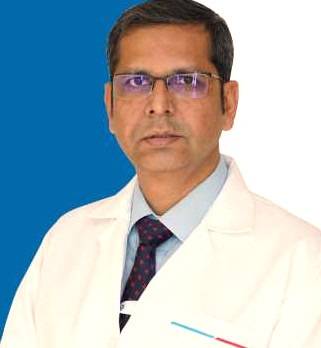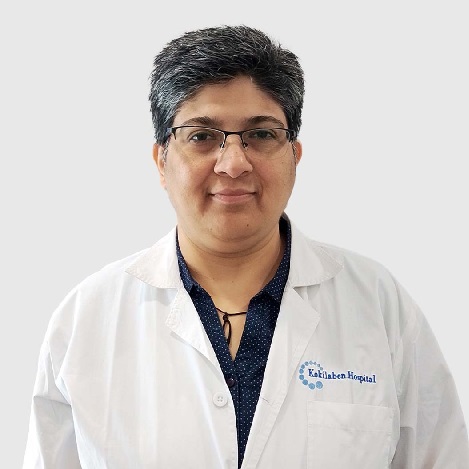If nasal cancer is suspected, a doctor will refer the patient to an otolaryngologist, a healthcare professional specialising in Ear, Nose, and Throat (ENT) diseases. An otolaryngologist will typically begin by asking the patient about their symptoms and taking down their medical history.
The doctor will physically examine the nose and surrounding areas to look for swelling, numbness, or firmness.
If the exam suggests the possibility of paranasal sinus or nasal cavity cancer, the doctor may recommend further tests, including:
- Imaging Tests: Imaging tests like CT scans, MRI scans, PET scans, head and neck X-rays, or ultrasounds can help determine the tumour’s size and location. Imaging tests are performed for several reasons before and after a diagnosis, such as:
- Looking for a suspected cancer
- Checking if the tumour can be safely biopsied without causing much bleeding
- Checking the spread of cancer
- Seeing if cancer can be removed with surgery
- Helping determine if the treatment is working
- Looking for signs of cancer recurrence
- Biopsy: A biopsy involves removing a small tissue sample from the tumour and examining it under a microscope to know if it is cancerous.
- The results of the biopsy help guide treatment.
- The biopsy type(fine-needle aspiration, incisional, and excisional) depends on the cancer’s location and the amount of tissue sample required for testing.
- Nasal Endoscopy: An endoscopy involves using a thin, flexible tube to inspect the inside of the nose and surrounding areas.
The tube has a camera attached at the end to help the doctor look inside the nasal cavity.
- Laryngoscopy: In this procedure, the doctor checks the larynx (voice box) with a laryngoscope (a thin tube with a light, lens, and video camera) to look for abnormalities inside the throat and voice box.
- Other Pre-treatment tests: People diagnosed with nasal cancer may need certain other tests to see if they are healthy for treatments like surgery or chemotherapy. These tests include:
- Blood Tests: A complete blood count helps determine whether the patient’s blood has normal numbers of different types of blood cells.
A blood chemistry test is used to assess the working of the liver and kidneys.
- Electrocardiogram and Pulmonary Function Tests: If the patient needs to undergo surgery, the doctor may recommend an electrocardiogram to check the heart’s functioning.
People may also need to undergo lung tests.
- Hearing Tests: Chemotherapy drugs for treating nasal cancer can affect hearing.
The doctor may check the hearing of the patient using an audiogram before starting treatment.
- Dental Exam: Radiation during treatment can increase the risk of infection, cavities, and breakdown of the jawbone.
The dentist may pull some teeth before radiation which might interfere with the treatment.
How to Prepare for Doctor Consultation?
Preparing for a doctor consultation for nasal cancer can help the patient get the most out of their appointment and ensure that their concerns are addressed. The following tips can help prepare for a doctor consultation:
- Write down the symptoms: Before the appointment, patients should list any symptoms they are experiencing, when they started, and how often they occur.
Symptoms should be as specific as possible and include any changes they have noticed in their sense of smell, vision, or hearing.
- Make a list of medications and supplements: Patients must bring a list of all their medications and supplements, including the dosage and frequency.
- Write down their medical history: It would help to list any medical conditions they have been diagnosed with, surgeries they have had, and any allergies they have.
- Write down questions: Patients should write down any questions about nasal cancer, including the diagnostic process, treatment options, and potential side effects.
- Bring a trusted friend or family member: Having a trusted friend or family member with them can help provide support and take notes during the appointment.
What to Expect from the Doctor?
During a nasal cancer consultation appointment, the doctor will likely ask the patient several questions to understand their symptoms and medical history. Some of the questions include:
- What symptoms are you experiencing? When did they start, and how severe are they?
- Have you been exposed to chemicals or substances that may increase your risk of nasal cancer?
- Do you smoke or use tobacco products? If yes, how much and for how long?
- Do you consume alcohol? If yes, how much and how often?
- Do you have any other medical conditions, and are you taking any medications or supplements?
- Have you had any medical procedures or surgeries related to your nose or sinuses?
- Have you noticed changes in your sense of smell, vision, or hearing?
- Have you ever been diagnosed with cancer in the past?
- Are there any family members who have been diagnosed with cancer?
- Did your symptoms affect your quality of life?
The doctor may also ask follow-up questions based on the answers to these initial questions.
Patients must be honest and thorough in their responses to help the doctor better understand the patient’s situation and provide appropriate treatment recommendations.
What Questions to Ask the Doctor?
Patients with suspected or diagnosed nasal cancer should also prepare questions to ask their doctors during consultation appointments.
Here are some questions patients may consider asking:
- What are the potential causes of my nasal cancer?
- What treatment options are available for my nasal cancer, and which do you recommend?
- What are the potential side effects of nasal cancer treatment options, and how can they be managed?
- How long will treatment take, and what can I expect during and after treatment?
- Will I need to be referred to any other specialists for treatment, such as a radiation oncologist or a head and neck surgeon?
- What is the prognosis for my nasal cancer, and what are my chances of survival?
- What changes should I make to my lifestyle to aid my treatment and recovery?
- How can I reduce the risk of cancer recurrence?
- How frequently will I need follow-up appointments, and what tests or imaging will be performed during these appointments?
- Are any clinical trials or experimental treatments available for my type of nasal cancer?
- What resources, such as support groups or counselling services, are available to support me and my family during this time?

























